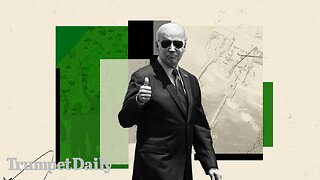Reagan Addresses Social Security, Medicaid & Middle East Instability: 1982 Interview
Over the course of his political career, Reagan developed a reputation as a charismatic and confident leader who was known for his ability to connect with voters and communicate a clear message. However, his leadership style and decision-making processes have also been the subject of significant scrutiny and debate.
Psychological profiling of political leaders is a complex and controversial practice, and it is important to note that any analysis of Reagan's personality must be based on publicly available information and cannot be considered a clinical diagnosis. Nonetheless, many scholars and experts have sought to understand Reagan's leadership style and decision-making processes through a variety of psychological frameworks.
Some analysts have suggested that Reagan exhibited traits of narcissism and grandiosity, which may have contributed to his confident and sometimes controversial approach to governance. Others have pointed to his background as an actor and his ability to project a certain image and persona, suggesting that his leadership style may have been shaped by his experience in the entertainment industry.
Despite the ongoing debates over Reagan's personality and leadership style, there is no question that he remains a significant figure in American political history. His presidency coincided with a period of significant change and uncertainty, both domestically and internationally, and his policies and decisions continue to shape American politics and foreign relations to this day.
During his presidency, Ronald Reagan faced significant opposition and criticism from civil service employees and their unions. This discontent was largely driven by Reagan's efforts to reduce the size and scope of the federal government, which included cuts to federal programs and a push to privatize certain government functions.
One of the most significant points of contention was Reagan's decision to fire over 11,000 air traffic controllers who went on strike in 1981, a move that many civil service employees saw as an attack on the labor movement and a violation of their rights.
In addition to this high-profile incident, there were a number of other issues that contributed to civil service discontent during the Reagan presidency. These included cuts to funding for social programs, reductions in staff levels at government agencies, and the outsourcing of certain government functions to private companies.
Reagan was known for his conservative views on government and his belief in the importance of limited government and free market principles. While these policies were popular with some segments of the population, they were met with significant opposition from civil service employees and their unions, who saw them as a threat to their jobs and the role of government in American society.
Despite this opposition, Reagan remained committed to his vision for smaller, more efficient government, and his policies helped to shape the political landscape for years to come.
Ronald Reagan was a strong supporter of Israel during his presidency, and his administration took a number of steps to strengthen the US-Israel relationship and promote peace in the Middle East.
One of Reagan's most significant contributions to the US-Israel relationship was the signing of the US-Israel Free Trade Agreement in 1985, which eliminated tariffs on a wide range of products and increased economic cooperation between the two countries. This agreement helped to boost trade and investment between the US and Israel, and it remains in effect to this day.
Reagan was also known for his strong support of Israel's security interests, and his administration provided significant military and economic aid to the country during his presidency. This aid helped to strengthen Israel's defense capabilities and support its efforts to negotiate peace with its Arab neighbors.
Despite his support for Israel, Reagan was also committed to promoting peace and stability in the Middle East, and he worked to broker peace negotiations between Israel and its Arab neighbors. In 1982, he helped to negotiate a ceasefire between Israel and the Palestine Liberation Organization, and he continued to advocate for peace and diplomacy throughout his presidency.
Ronald Reagan's presidency saw significant changes to the Medicaid program, which provides healthcare coverage to low-income Americans. While Reagan was a proponent of smaller government and reduced federal spending, he also recognized the importance of providing healthcare coverage to vulnerable populations.
One of Reagan's key changes to the Medicaid program was the introduction of block grants, which gave states more flexibility in how they used Medicaid funding. This approach was designed to reduce federal spending on healthcare while also allowing states to tailor their Medicaid programs to better meet the needs of their populations.
However, critics argued that this approach also reduced the level of federal oversight and accountability for Medicaid programs, and that it could lead to disparities in healthcare coverage between states. Some also argued that the block grant approach could result in reduced benefits and coverage for Medicaid recipients, particularly those with complex or chronic medical conditions.
Despite these criticisms, Reagan remained committed to his vision of reducing federal spending on healthcare while also providing essential services to those in need. His approach to Medicaid eligibility and funding continues to be a topic of debate and discussion in American politics today, as policymakers grapple with the challenge of balancing the need for affordable healthcare with the imperative to control government spending.
During his presidency, Ronald Reagan implemented a series of policies aimed at reducing government spending and promoting economic growth. While these policies were generally popular among conservatives and business leaders, they also had significant impacts on social assistance programs, which provide support to vulnerable and low-income Americans.
One of Reagan's most significant changes to social assistance programs was the introduction of block grants, which gave states more control over how they used federal funding for programs like food stamps, housing assistance, and welfare. This approach was designed to reduce federal spending on social assistance programs while also giving states more flexibility to tailor their programs to the needs of their populations.
However, critics argued that the block grant approach could result in reduced benefits and coverage for vulnerable populations, particularly in states with lower funding levels or less robust social safety nets. Some also argued that the block grant approach could lead to increased inequality between states, with wealthier states being better able to provide social assistance to their populations.
In addition to his focus on block grants, Reagan also implemented a number of other policies aimed at reducing federal spending on social assistance programs. For example, he introduced stricter eligibility requirements for programs like food stamps and welfare, and he cut funding for a number of social assistance programs, including job training and education programs.
Overall, Reagan's approach to social assistance programs was driven by a desire to reduce government spending and promote economic growth. While his policies were generally popular among conservatives and business leaders, they also had significant impacts on vulnerable and low-income Americans, and they remain a topic of debate and discussion in American politics today.
The Ronald Reagan era was marked by significant political and military instability in the Middle East. During his presidency, Reagan faced a number of complex foreign policy challenges in the region, including the Iran-Iraq War, the Israeli-Palestinian conflict, and the rise of extremist groups like Hezbollah.
One of Reagan's key initiatives in the region was the establishment of the Reagan Plan, which called for a negotiated settlement between Israel and the Palestinians based on the principle of Palestinian autonomy. However, the plan was ultimately unsuccessful, and the Israeli-Palestinian conflict continued to simmer throughout Reagan's presidency and beyond.
Reagan was also involved in a number of other regional conflicts during his presidency. For example, the United States provided military support to Iraq during its war with Iran, and Reagan authorized a number of covert operations aimed at countering Iranian influence in the region.
However, these efforts often had unintended consequences, and the region remained plagued by instability and conflict throughout Reagan's presidency. In particular, the rise of extremist groups like Hezbollah and the growth of Iran's regional influence contributed to ongoing political and military instability in the Middle East.
Today, the legacy of Reagan-era Middle East policy continues to be felt in the region, as policymakers grapple with ongoing conflicts and seek to promote stability and peace in the region.
-
 4:17:22
4:17:22
The Memory Hole
1 day agoWatergate Hearings Day 25: Robert Mardian and Gordon Strachan (1973-07-20)
3201 -
 1:20:52
1:20:52
Michael Franzese
22 hours agoMichael Franzese LIVE! | Democrat Failures & The Upcoming Election | Ep. 8
16.3K18 -
 8:36
8:36
Adam Does Movies
18 hours ago $5.34 earnedThe Bikeriders Movie Review - It's Not What You Think
58K13 -
 LIVE
LIVE
LFA TV
7 hours agoTRUMP PHILADELPHIA RALLY LIVE @1PM EST
2,608 watching -
 59:26
59:26
Trumpet Daily
1 day ago $3.29 earnedHamas Has a Friend in the Biden Administration - Trumpet Daily | June 21, 2024
18.5K30 -
 1:13:51
1:13:51
Edge of Wonder
23 hours agoCIA Remote Viewed Jupiter, New Spider-Man Mandela Effect & Weird News
48.5K26 -
 1:41:29
1:41:29
2 MIKES LIVE
22 hours ago2 MIKES LIVE #81 OPEN MIKE FRIDAY!
27.8K6 -
 1:10:19
1:10:19
Wendy Bell Radio
6 hours agoPet Talk With The Pet Doc (CBD and Mushroooms for Pets)
31.4K16 -
 42:43
42:43
The Why Files
3 days agoProof of Life After Death: Hope and a Warning From The Other Side
66.3K144 -
 1:40:35
1:40:35
Flyover Conservatives
16 hours agoShocking Facts about the Largest Structure EVER Built by Man - Conspiracy Conversations (EP #40) with David Whited - Timothy Schwab
55.4K28